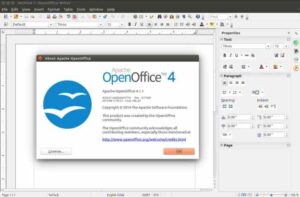Remote Programming Jobs Where To Find Them
Remote programming jobs where to find them is a crucial topic for anyone seeking flexible work options. This guide explores various avenues for discovering these opportunities, from popular online job boards to networking strategies and essential skills needed for success. It details the distinct characteristics of remote work, compares it to traditional in-office roles, and offers practical advice on navigating the job search process.
The landscape of remote programming is dynamic and ever-evolving. Understanding the specific platforms and techniques for locating suitable roles, coupled with essential skills and interview preparation, is paramount to finding the ideal remote programming position.
Introduction to Remote Programming Jobs

Source: learncodingusa.com
Remote programming jobs involve performing programming tasks from a location outside of a traditional office setting. This flexible work arrangement has become increasingly popular, offering unique advantages and challenges for both employers and employees. The rise of remote work has significantly expanded opportunities for programmers, regardless of their physical location.Remote programming encompasses a wide spectrum of specializations, each requiring distinct skills and experience.
This includes but is not limited to web development, software engineering, data science, and more specialized roles. Companies now recognize the value of remote expertise, leading to a thriving market for professionals in these fields.
Different Types of Remote Programming Jobs
Various roles within the programming field offer remote opportunities. These roles often overlap, but each requires unique skill sets and expertise.
- Web Development: This encompasses front-end and back-end development, designing and creating websites and web applications. Front-end developers focus on the user interface, while back-end developers handle server-side logic and database management. Examples include building e-commerce platforms or creating interactive dashboards.
- Software Engineering: This involves designing, developing, testing, and maintaining software applications. Software engineers use various programming languages and methodologies to create complex systems. Examples include developing mobile apps, operating systems, or enterprise software.
- Data Science: This involves extracting insights and knowledge from data. Data scientists use statistical modeling, machine learning, and programming to analyze data and create predictive models. Examples include building recommendation systems, fraud detection models, or customer segmentation models.
Advantages of Remote Programming Jobs
Remote work offers numerous benefits for employees. These advantages stem from flexibility and autonomy.
- Improved Work-Life Balance: Remote work often allows for greater flexibility in scheduling, enabling a better integration of personal and professional life. This can lead to reduced stress and improved overall well-being.
- Increased Flexibility: Remote workers often have the freedom to work from anywhere with an internet connection. This can be a major benefit for those seeking location independence or who have family obligations or other commitments.
- Potential for Higher Earning Potential: In some cases, remote workers may be able to command higher salaries due to increased flexibility or access to a larger talent pool.
Disadvantages of Remote Programming Jobs
Remote work also presents challenges. These challenges often involve the need to manage oneself and one’s work environment.
- Maintaining Focus: Maintaining focus and concentration in a home office environment can be challenging, particularly when distractions are present.
- Isolation and Lack of Social Interaction: Working remotely can lead to feelings of isolation and a lack of spontaneous collaboration with colleagues.
- Difficulty in Collaboration: Remote collaboration can be more complex than in-office collaboration, requiring careful planning and communication strategies.
Comparison of Remote and In-Office Work Environments, Remote programming jobs where to find them
The following table highlights key differences between remote and traditional in-office work environments.
| Feature | Remote Work | In-Office Work |
|---|---|---|
| Location | Flexible | Fixed |
| Communication | Primarily digital | Primarily face-to-face |
| Work-Life Balance | Potentially better | Potentially worse |
| Collaboration | Can be challenging | Easier |
Platforms and Websites for Finding Remote Programming Jobs
Finding the right remote programming job can be challenging, but utilizing dedicated platforms and websites significantly increases your chances of success. These resources often provide detailed job descriptions, filtering options, and direct communication with potential employers, streamlining the job search process. Effective use of these tools is key to identifying suitable opportunities and making informed career decisions.
Popular Online Job Boards for Remote Programming
Various online platforms specialize in connecting job seekers with remote programming roles. These sites typically offer extensive listings, advanced search filters, and often, direct communication with recruiters. Understanding the strengths and weaknesses of each platform allows for a more strategic job search.
| Platform | Strengths | Weaknesses |
|---|---|---|
| Indeed | Massive job database, broad reach, easy to use interface. Provides detailed job descriptions and company information. | Can be overwhelming with sheer volume of listings, sometimes less specific to remote roles. Competition can be fierce. |
| Excellent for networking and building professional connections, useful for finding remote roles, particularly those requiring specific technical skills. Many recruiters use LinkedIn to post jobs. | Requires a strong LinkedIn profile. Not all remote jobs are listed exclusively, and the algorithm may not prioritize remote positions in searches. | |
| Remote.co | Specializes in remote jobs, allowing for targeted searches and filters based on specific skills, technologies, and companies. Often features highly qualified and vetted roles. | Might have fewer listings compared to general job boards, but the quality of the roles tends to be higher. Potential cost for subscription or premium features. |
| We Work Remotely | Focuses entirely on remote work, making it a great resource for finding roles that specifically allow for a fully remote experience. | May have fewer listings compared to general job boards, and the focus on remote positions may result in a less diverse pool of opportunities. |
| FlexJobs | Known for its quality remote jobs, including those tailored to specific industries or roles. Includes various types of remote work, not just programming. | Can sometimes have a paywall or require a subscription for accessing premium features or specific job listings. |
Effectiveness of Job Aggregators
Job aggregators consolidate listings from various job boards, presenting a broader range of options. They can be useful for quickly scanning a wide range of opportunities, but the quality and relevance of listings can vary. Careful filtering is crucial when using aggregators to avoid overwhelming results.
Advanced Search Filters on Job Boards
Many job boards offer sophisticated search filters. Utilizing these filters can dramatically narrow down your search results. Effective use of these tools allows for targeting specific roles, locations, technologies, and experience levels, significantly increasing the efficiency of the job search. These features help focus the search and increase the probability of finding suitable positions. Example filters include location, salary range, company size, required technologies, and experience level.
Websites Focused on Remote Technical Roles
Several websites specialize in remote technical roles. These sites typically feature curated listings of remote programming positions, focusing on specific skills and experience levels. This focused approach can streamline the search process and provide more targeted opportunities. Sites focusing on remote technical roles often have dedicated communities and resources for technical professionals.
Networking and Community Building for Remote Programming Jobs
Building a strong professional network is crucial for finding and succeeding in remote programming roles. Networking expands your visibility and provides opportunities for mentorship, collaboration, and valuable insights. This includes connecting with individuals who can offer advice, potentially lead to job openings, or even open doors to future projects.Effective networking involves more than just collecting contacts. It’s about building genuine relationships based on mutual respect and shared interests.
Engaging in online communities and forums further solidifies your presence and enhances your professional reputation.
Strategies for Networking with Remote Programming Professionals
Networking is a two-way street. To maximize its benefits, actively participate in online communities and discussions. Share your knowledge and experiences while also listening attentively to others. This approach fosters genuine connections and positions you as a valuable member of the community. Demonstrate your expertise through thoughtful contributions.
Don’t just seek opportunities; offer assistance to others whenever possible.
The Value of Online Communities and Forums
Online communities and forums provide a platform to connect with like-minded individuals. These platforms allow you to share your experiences, ask questions, and gain insights from others. They’re often valuable resources for learning new technologies and techniques. Engage in constructive discussions, offer solutions to problems, and actively participate in threads relevant to your interests. Engaging with these communities demonstrates your passion and dedication.
Examples of Relevant Online Communities and Groups
Numerous online communities cater to remote programmers. Some popular platforms include Stack Overflow, Reddit’s r/programming, and GitHub discussions. These spaces offer diverse communities focused on various programming languages and technologies. Joining groups and communities focused on specific niches can enhance your networking opportunities. Look for communities aligned with your programming interests.
Leveraging Social Media Platforms for Remote Work Opportunities
Social media platforms can be effective tools for finding remote work opportunities. LinkedIn, in particular, is a prime platform for connecting with recruiters and potential employers. Showcase your skills and experience through your profile. Actively participate in relevant groups and discussions. Use the platform to highlight your accomplishments and engage in conversations about remote work.
Use relevant hashtags to increase visibility.
The Importance of Online Presence for Showcasing Skills and Experience
A strong online presence is crucial for showcasing your skills and experience to potential employers. A well-maintained LinkedIn profile, a portfolio website, or a GitHub repository demonstrating your projects are key. This demonstrates your proficiency and highlights your contributions. Keep your profile up-to-date with your current projects and accomplishments. These platforms showcase your abilities to a wider audience, making you a more attractive candidate.
Skills and Qualifications for Remote Programming Jobs

Source: co.uk
Landing a remote programming job requires a blend of technical proficiency and soft skills. A strong understanding of programming languages and frameworks is essential, but equally vital are communication, problem-solving, and time management abilities. This section will delve into the crucial skills needed for success in various remote programming roles, focusing on both hard and soft skills.Remote programming positions often demand a high degree of self-direction and adaptability.
Candidates need to demonstrate a proactive approach to problem-solving and efficient time management. Highlighting these abilities in your resume and cover letter is crucial for making a compelling impression on potential employers.
Essential Technical Skills
Technical proficiency is fundamental for any programming role. Different languages require varying skill sets. For example, Python’s versatility in data science and scripting often necessitates expertise in libraries like Pandas and NumPy. JavaScript, crucial for front-end web development, demands a solid understanding of HTML, CSS, and relevant frameworks like React or Angular. Java, used extensively in enterprise applications, requires familiarity with object-oriented programming principles and associated tools.
Importance of Soft Skills
Beyond technical expertise, soft skills are critical for thriving in a remote environment. Effective communication, clear and concise, is vital for collaboration and project success. Strong problem-solving abilities allow for independent troubleshooting and creative solutions. Exceptional time management ensures projects are completed efficiently and deadlines are met. Teamwork, while often remote, still plays a critical role.
This often involves coordinating with team members through various communication channels.
Highlighting Skills in Resumes and Cover Letters
Integrating these skills effectively into your resume and cover letter is key. Quantify your achievements whenever possible. Instead of saying “Proficient in Python,” demonstrate your proficiency with examples like, “Developed a Python script that automated data processing, resulting in a 20% increase in efficiency.” For soft skills, use action verbs and describe specific instances where you showcased these skills.
For example, “Collaborated effectively with cross-functional teams to deliver projects on time and within budget.”
Key Skills and Examples
| Skill | Example |
|---|---|
| Communication | Successfully presented technical solutions to non-technical stakeholders; actively participated in online team meetings; provided clear and concise updates to project managers. |
| Problem-solving | Identified and resolved critical bugs in a complex web application; developed creative solutions to overcome project roadblocks; effectively debugged code using systematic approaches. |
| Time management | Consistently met project deadlines while managing multiple tasks; effectively prioritized tasks to ensure timely completion of deliverables; utilized project management tools to track progress and ensure on-time delivery. |
| Teamwork | Successfully collaborated with remote team members on a large-scale project; effectively communicated progress updates and addressed concerns promptly; actively participated in team discussions to achieve shared goals. |
Interviewing for Remote Programming Jobs: Remote Programming Jobs Where To Find Them
Landing a remote programming job often hinges on acing the interview process. This crucial stage allows employers to assess your technical skills, problem-solving abilities, and communication style, all within a virtual environment. Effective preparation is key to making a positive impression and increasing your chances of success.Understanding the nuances of remote interviews and tailoring your approach is essential.
The virtual setting necessitates a focus on clear communication, professionalism, and a demonstrable understanding of the role’s requirements. A well-rehearsed interview strategy, including practice sessions and awareness of common questions, significantly boosts your confidence and ultimately your success rate.
Preparing for Remote Programming Interviews
Effective preparation is paramount for a successful remote programming interview. This involves a comprehensive review of your skills and experience, alongside familiarization with the company and role’s specific requirements. Thorough research allows you to articulate your suitability and align your responses with the employer’s expectations.
Common Interview Questions and Sample Answers
Programming interviews frequently involve technical questions. Demonstrating your knowledge of algorithms, data structures, and common programming concepts is vital. Practice answering questions aloud to refine your delivery and ensure clarity.
- Problem-solving questions: These assess your ability to approach challenges systematically and creatively. For example, explain how you would approach debugging a complex code snippet, emphasizing the steps you would take, from identifying potential issues to implementing a solution.
- Technical skills questions: Interviewers often assess your proficiency in specific languages or frameworks. Prepare examples where you’ve utilized these tools effectively in previous projects. For instance, describe a project where you implemented a particular algorithm, highlighting the challenges you faced and how you overcame them.
- Behavioral questions: These delve into your work style and experience. Showcase your teamwork, communication, and problem-solving abilities by narrating relevant past experiences, demonstrating your adaptability and resilience.
Demonstrating Strong Communication Skills in Remote Interviews
Effective communication is crucial for remote interviews. Clarity and conciseness are paramount, ensuring the interviewer understands your responses. Practice your answers beforehand to maintain a smooth and professional tone.
- Clear and concise communication: Articulating your thoughts and ideas clearly is paramount in a remote setting. Speak slowly and deliberately, ensuring your answers are well-structured and easy to understand. Avoid jargon or technical terms unless absolutely necessary. Employing concise and structured language enhances clarity and professionalism.
- Active listening: Pay close attention to the interviewer’s questions and follow up appropriately. Ask clarifying questions if necessary. This demonstrates engagement and attentiveness, crucial aspects of effective communication.
Strategies for Making a Good Impression During Virtual Interviews
First impressions matter, especially in a virtual environment. Ensure your setup is professional and conducive to a productive interview. Dress professionally, maintain eye contact, and use a reliable internet connection.
- Professional attire: Dress professionally as if you were attending an in-person interview. This demonstrates respect for the interviewer and the opportunity.
- Test your technology: Confirm your microphone and camera are functioning correctly. Conduct a trial run to ensure a seamless interview experience.
- Maintain eye contact: Maintain consistent eye contact, as this enhances engagement and professionalism.
Professionalism and Etiquette in Remote Communication
Professionalism and etiquette are vital for remote interactions. Respect the interviewer’s time, be punctual, and maintain a courteous tone throughout the interview. Avoid distractions and maintain a respectful environment.
- Punctuality: Be on time for your interview. Being late can negatively impact your impression.
- Professional demeanor: Maintain a respectful and professional demeanor throughout the interview. Avoid distractions and maintain a courteous tone.
- Active listening and appropriate responses: Pay close attention to the interviewer’s questions and respond thoughtfully and concisely.
Remote Work Culture and Expectations
Navigating the remote work landscape requires understanding the nuances of different industries and the shared expectations within a remote team. This section explores common norms, cultural disparities, work-life balance strategies, and effective communication practices for remote programmers.Remote work culture varies significantly between industries. Tech companies often embrace a flexible and results-oriented approach, while traditional finance roles may maintain more structured schedules.
Understanding the prevalent norms in a specific sector allows programmers to tailor their approach and expectations accordingly.
Common Remote Work Expectations
Remote work relies on a high level of self-management and accountability. Team members are expected to be proactive in communication, managing their time effectively, and meeting deadlines. Clear communication channels and defined roles are crucial for seamless collaboration. Regular check-ins and project updates are standard, ensuring everyone is aligned and informed.
Remote Work Culture in Different Industries
Different industries have varying expectations and norms regarding remote work.
- Tech Industry: Often characterized by a flexible, results-oriented approach, emphasizing autonomy and quick response times. Teams prioritize frequent communication and collaborative problem-solving, often using tools like Slack and instant messaging for real-time interaction.
- Finance: Typically demands a more structured schedule and adheres to established communication protocols. Strict adherence to deadlines and reporting structures is paramount. Security protocols and compliance are often heightened.
- Marketing: Often involves a blend of structure and flexibility, allowing for autonomy in creative tasks while maintaining regular check-ins and project deadlines. Collaboration tools are widely used to ensure consistent project updates and knowledge sharing.
Maintaining Work-Life Balance in a Remote Environment
Establishing clear boundaries between work and personal life is essential for remote workers. Setting dedicated work hours, creating a designated workspace, and taking regular breaks are key strategies. Regular exercise, healthy eating, and sufficient sleep contribute significantly to well-being. It’s crucial to actively disconnect from work during non-working hours to prevent burnout.
Best Practices for Effective Communication in a Remote Team Setting
Effective communication is critical in a remote environment. Regular check-ins, clear project documentation, and consistent use of communication tools are vital. Regular team meetings, both formal and informal, foster a sense of community and enable seamless knowledge sharing. Active listening and clear, concise communication are paramount.
- Regular Check-ins: Schedule daily or weekly briefings to discuss progress, address challenges, and keep the team aligned. This prevents misunderstandings and ensures everyone is aware of the current status of projects.
- Clear Communication Channels: Designate specific channels for different types of communication (e.g., Slack for quick questions, email for formal updates). Establish clear communication protocols to maintain consistency and reduce ambiguity.
- Documentation: Maintain comprehensive project documentation, including meeting notes, task assignments, and decisions. This acts as a single source of truth and allows team members to easily access crucial information.
Sample Schedule for a Remote Programmer
A sample schedule for a remote programmer can be structured to accommodate personal preferences and project demands. This schedule balances dedicated work blocks with personal time.
| Time | Activity | Description |
|---|---|---|
| 8:00 AM – 9:00 AM | Morning Routine | Wake up, exercise, breakfast |
| 9:00 AM – 12:00 PM | Project Focus | Prioritized tasks, coding, design |
| 12:00 PM – 1:00 PM | Lunch Break | Rest and recharge |
| 1:00 PM – 4:00 PM | Project Focus | Continued tasks, coding, debugging |
| 4:00 PM – 5:00 PM | Wrap-up and Planning | Project review, planning for next day |
| 5:00 PM – 8:00 PM | Personal Time | Free time, hobbies, family time |
| 8:00 PM onwards | Evening Routine | Relaxation, wind-down activities |
Outcome Summary
In conclusion, securing a remote programming job requires a multifaceted approach. This guide has illuminated the diverse avenues for finding remote opportunities, the crucial skills for success, and the nuances of remote work culture. By combining diligent research, strategic networking, and robust preparation, individuals can significantly increase their chances of landing a fulfilling remote programming role.













Post Comment